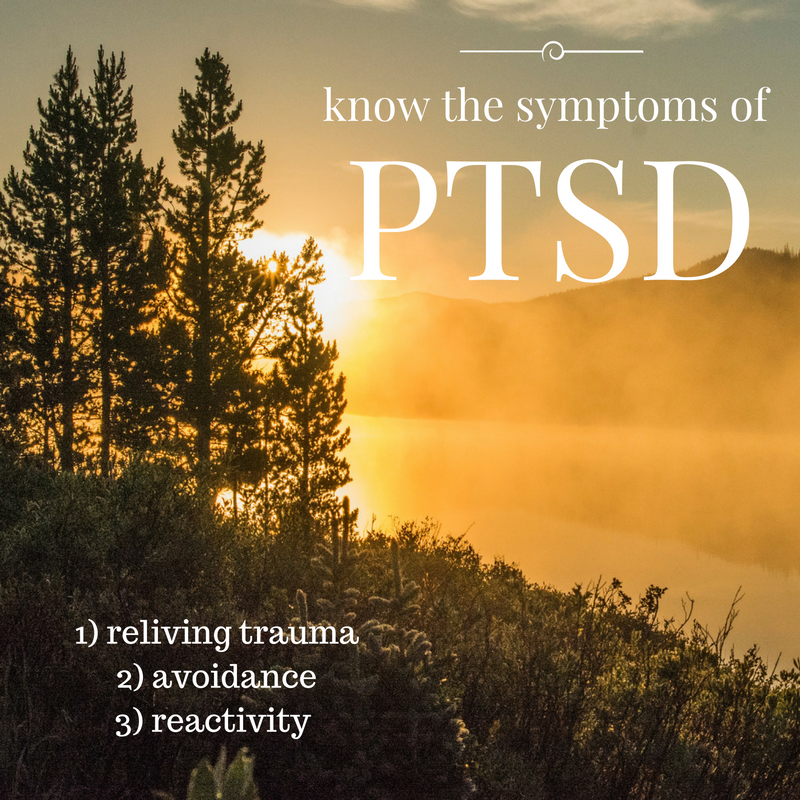
Challenges of living with PTSD
PTSD or post-traumatic stress disorder is most commonly known to affect war veterans. While even though up to 50% of people who have gone to war experience the lasting effects of PTSD, the majority of sufferers have endured other types of traumatic situations. It is speculated that about 7 or 8 out of every 100 people will experience PTSD during their life.
PTSD can occur at any age and after any traumatic event. Many adults develop PTSD when they have returned from war, been in a terrible car accident, or experienced severe abuse. It can occur in children who have been abused, neglected, or have survived a natural disaster. I have personally known a few people who experience PTSD- one because of abuse, and one because of two near-fatal car accidents within the same year. In both of these occasions, the symptoms are the same but at varying degrees of intensity.
There are 3 well-known symptoms of PTSD. The first is reliving the traumatic event. In this instance the person will dissociate from their environment and experience the traumatic situation over again. Places, people, or other situations that remind them of the event can trigger this. In some rare cases, this symptom may be triggered by unknown causes. This reliving symptom may also manifest itself during sleep if not during the day.
This leads us to our next symptom: avoidance. When a person has experienced PTSD, they will try to avoid the places, people, and situations that can serve as a trigger. While this seems intuitive, it may not be healthy since it can interfere with everyday life as well as healthy situations and relationships. For example, a person who has been abused may never want to get close to other people, or talk about their experiences. This behavior may actually cause the PTSD to worsen since talk therapy and support groups can be highly beneficial for healing.
The last symptom is known as reactivity. Another familiar phrase for this is a person who’s acting “on edge.” They will constantly be on guard, getting irritated easily, not sleeping soundly, and often acting out angrily. This type of behavior is different than a typical type of irritability because the general, consistent mood for this symptom will interfere with normal, everyday life such as eating, sleeping, and focusing on important tasks. This isn’t a triggered symptom but instead it’s a symptom that is consistent from day to day.
One of the more difficult parts about PTSD is that many people don’t know where to go and will cope using negative strategies such as substance use and isolation. While these strategies seem to be relieving at first, they will actually prolong the healing process, and in some cases make it worse. In fact, the most positive coping mechanisms are the exact opposite of those! If you or a loved one are suffering from PTSD the best ways to deal with it are as follows:
- Let your doctor know that you are looking for some help. They are the first line of defense and can provide many resources.
- Engage in positive lifestyle habits such as exercising, setting attainable goals, organizing your time well, and planning ahead.
- Spend time with friends and communicate with them about what you need.
- Set realistic expectations about your healing and boundaries and communicate your needs with those around you.
- Remind yourself that you are not “broken” and have the ability to heal. Understand that it is normal to have to take extra steps to process traumatic experiences. There are many people that can relate to this process, so take advantage of support groups that can help you feel like you are not alone.
At Lifeline Connections, we care about treating the whole person. If you suffer from post-traumatic stress disorder and are struggling with substance abuse, call us and give us a chance to provide the help you need. We have many different types of therapies we utilize to customize your treatment experience. We want to give you the right tools to be able to live your life free from the chains of addiction, and we are dedicated to your cause. Call or email us today.
Phone: 360-397-8246 ext. 7580, Email: [email protected]
For additional help, check out these resources:
